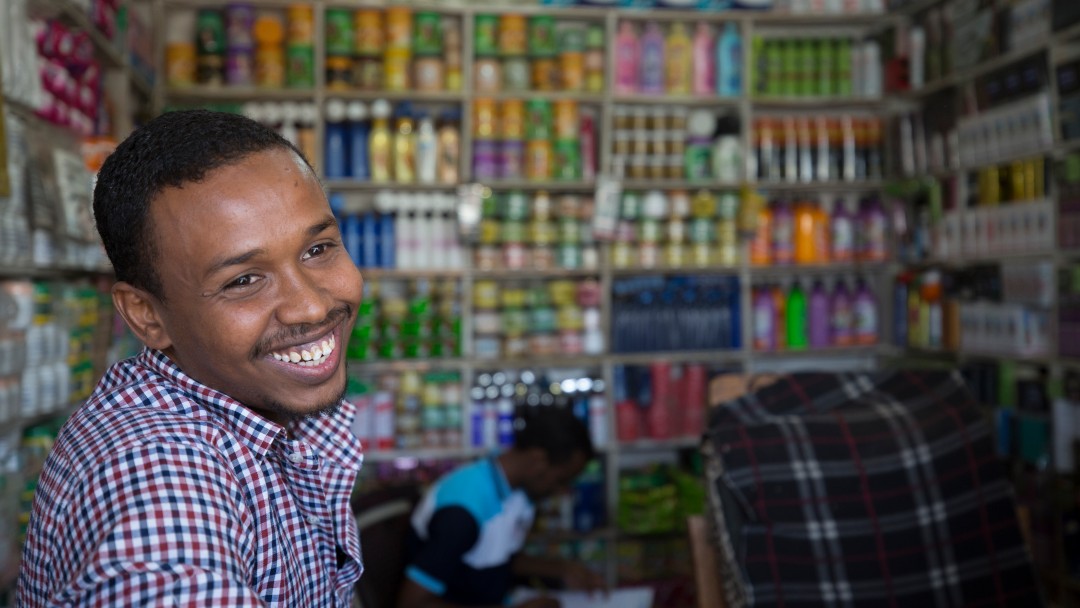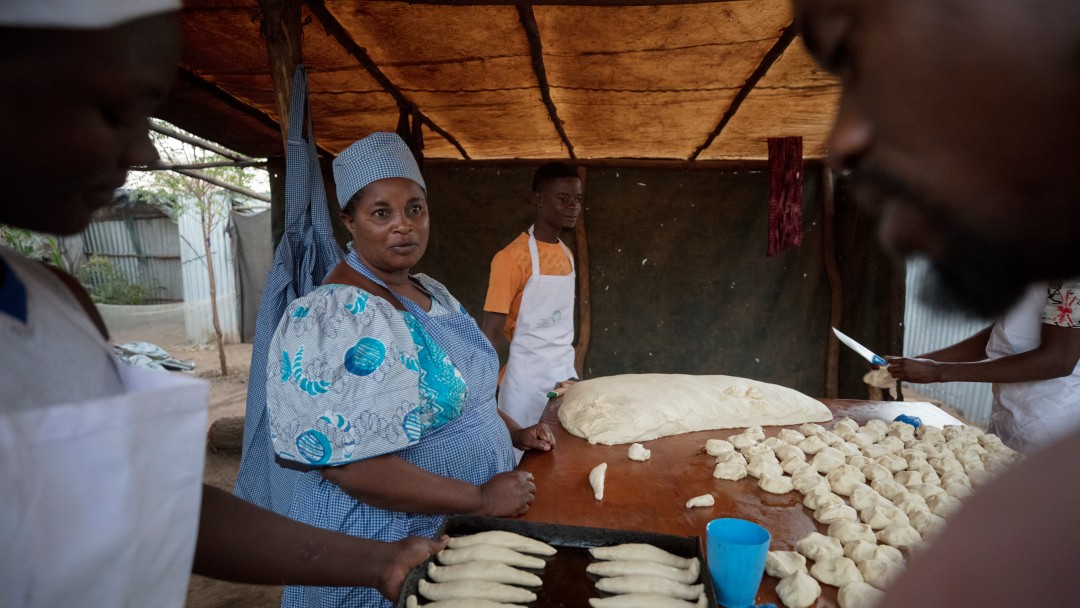
Kakuma in Kenya is one of the largest and oldest refugee camps in the world. An informal economy has formed around the camp with its approximately 250,000 inhabitants: Kiosks, clothes shops and small traders offer goods. On behalf of the BMZ, KfW supports the Kakuma Kalobeyei Challenge Fund (KKCF) to expand its potential and show new businesses opportunities in this market.
Kiosks, corner shops, cafés and restaurants as well as representatives of the mobile money system M-Pesa to motorbike taxis - a multitude of businesses have established themselves in the Kakuma refugee camp in northwestern Kenya. The camp with its approximately 250,000 residents has existed since 1992 and is supplied by humanitarian organisations. But this support does not fully cover the needs of the refugees. More than 2,000 small businesses have settled in the camp and in the neighbouring villages. The camp is mainly home to refugees from South Sudan and Somalia, but also Congolese and Ethiopians. It is located in the remote north of Kenya, yet there is a lively exchange with the surrounding Kenyan communities.
In order to increase the market potential in Kakuma - Kalobeyei, KfW, along with other donors (EU, Swiss Agency for Development and Cooperation, FCDO and the Netherlands), is currently supporting a project of the International Finance Corporation (IFC) to promote the private sector in Kakuma town, the camp and the Kalobeyei settlement with EUR 8.24 million on behalf of the BMZ from the Special Initiative on Refugees and host countries.
For this purpose, the IFC has established the Kakuma Kalobeyei Challenge Fund (KKCF) and has entered into a partnership with the African Enterprise Challenge Fund (AECF).
The aim is to support small businesses in Kakuma, to initiate further start-ups and to encourage medium-sized and larger companies to become involved there. The supply situation and the self-reliance of the people in the camp and in the neighbouring communities are to be promoted in this way. The IFC has identified great economic potential in the refugee camp and its surroundings in the study Kakuma as a Marketplace. The project is expected to create 350 new jobs and provide 40,000 people with access to improved services, including banking services, access to electricity (mini-grids), telecommunications (mobile phone charging stations), sanitation and childcare. In addition, IFC is working with local government to improve the county investment climate.
As of today, the KKCF is bringing 25 private and social enterprises to Kakuma and Kalobeyei and supports another 36 local businesses. This has already created 350 new jobs and provided 70,000 people with improved products and services. These enterprises provide solar power, sanitation, and goods and services for daily needs such as childcare. The two largest companies are the international pharmacy chain GoodLife, which has opened its own branch in Kakuma, and Equity Bank, which will use an IFC guarantee to expand its loan portfolio in Turkana to include refugees.
In addition, the local government has opened a one-stop shop with services related to entrepreneurship in Kakuma and an investment information portal to best support interested companies in entering the Kakuma market.

The inhabitants will thus become less dependent on aid organisations and the UN Refugee Agency (UNHCR), which in turn has to manage with increasingly scarce financial resources. The project strengthens the private sector and promotes employment and economic power in northwestern Kenya.
Public support for the private sector in refugee contexts is particularly new and innovative. The project thus entails some risks, but also great potential. Among other things, long-standing camps like Kakuma could gain greater autonomy and independence from humanitarian aid through such projects. This is in line with the goal of the New York Declaration of Refugees and Migrants of 19 September 2016 and the Global Compact for Refugees of 2018 to ensure full self-sufficiency of refugees and host communities in the long term. The project fits into the key elements of the Comprehensive Refugee Response Framework (CRRF) by taking pressure off host countries as well as contributing to refugee self-reliance. Long-term perspective: permanent and sustainable support instead of humanitarian aid.
Share page
To share the content of this page with your network, click on one of the icons below.
Note on data protection: When you share content, your personal data is transferred to the selected network.
Data protection
Alternatively, you can also copy the short link: https://www.kfw-entwicklungsbank.de/s/enzBXxte
Copy link Link copied